Kenya’s capital is coming together to heal and hope after another deadly terror attack
The two young men left the world the same way they had lived: together as friends and colleagues.


The two young men left the world the same way they had lived: together as friends and colleagues.
On Tuesday afternoon (Jan. 15), 31-year-old Feisal Ahmed and 33-year-old Abdalla Mohamed Dahir were killed when the al-Qaeda-linked Somali terrorist group al-Shabaab attacked a luxury hotel and office complex west of Nairobi. The two Kenyan nationals worked on a Somalia-focused project managed by the professional services firm Adam Smith International whose office is located in the sprawling 14 Riverside compound.
The duo was having lunch on the terrace of a restaurant when gunmen started shooting and set off car bombs followed by a suicide explosion in the foyer of the dusitD2 hotel just after 3 pm. In the siege that lasted for 20 hours, Feisal and Abdalla would lose their lives, along with at least 19 other people comprising both Kenyan and foreign nationals. (Police said 16 Kenyans, one Briton, one American, and three Africans whose nationalities have not yet been disclosed died. Five terrorists were also killed.)
In the years they spent time together as professionals and comrades, photos now tell the story of how their lives remained inextricably linked: posing together close to a giraffe during an excursion, laughing wholeheartedly in work retreats, and attending the Mogadishu book fair dressed in almost matching light blue shirts, jeans, and leather shoes.
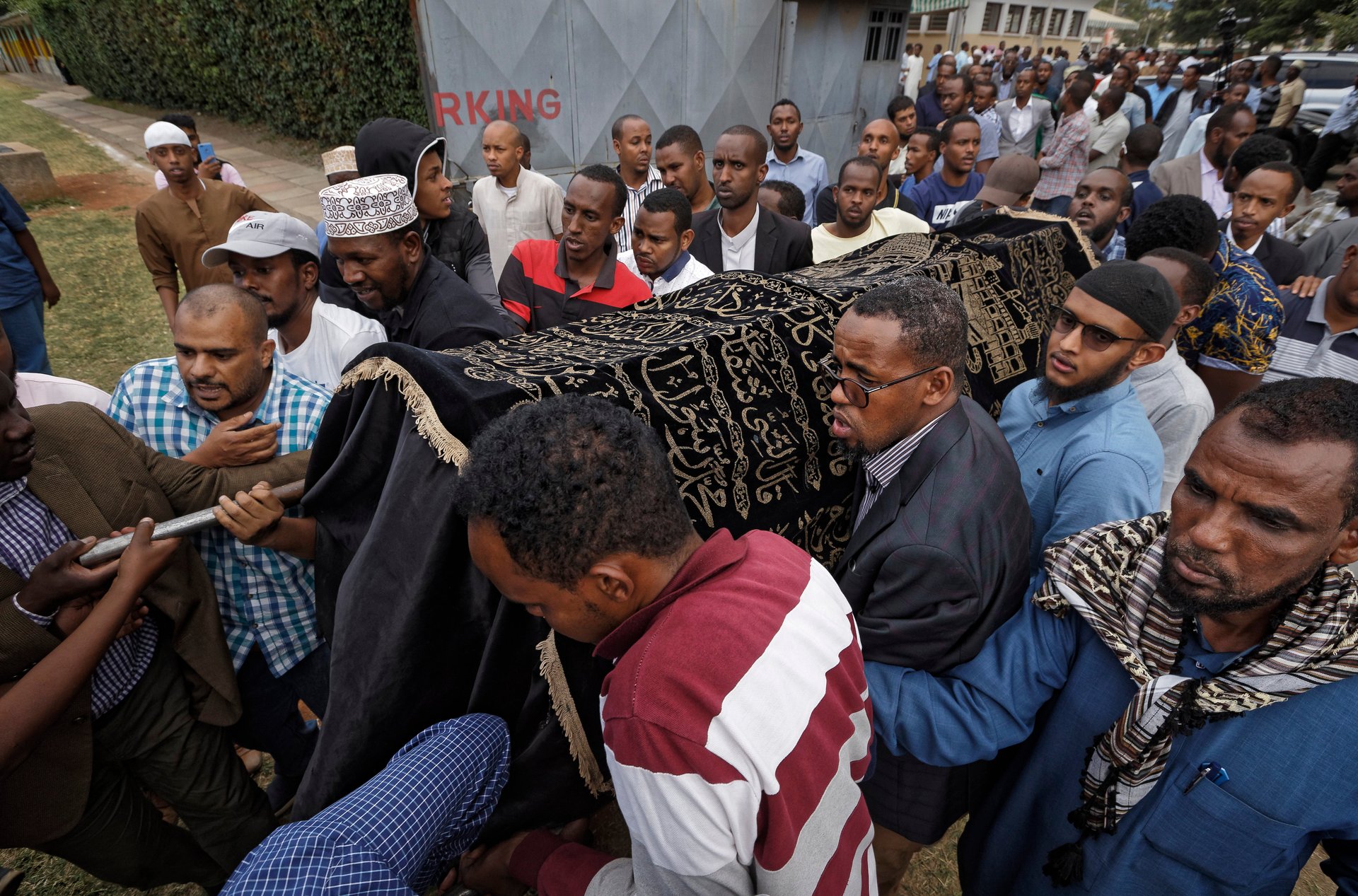
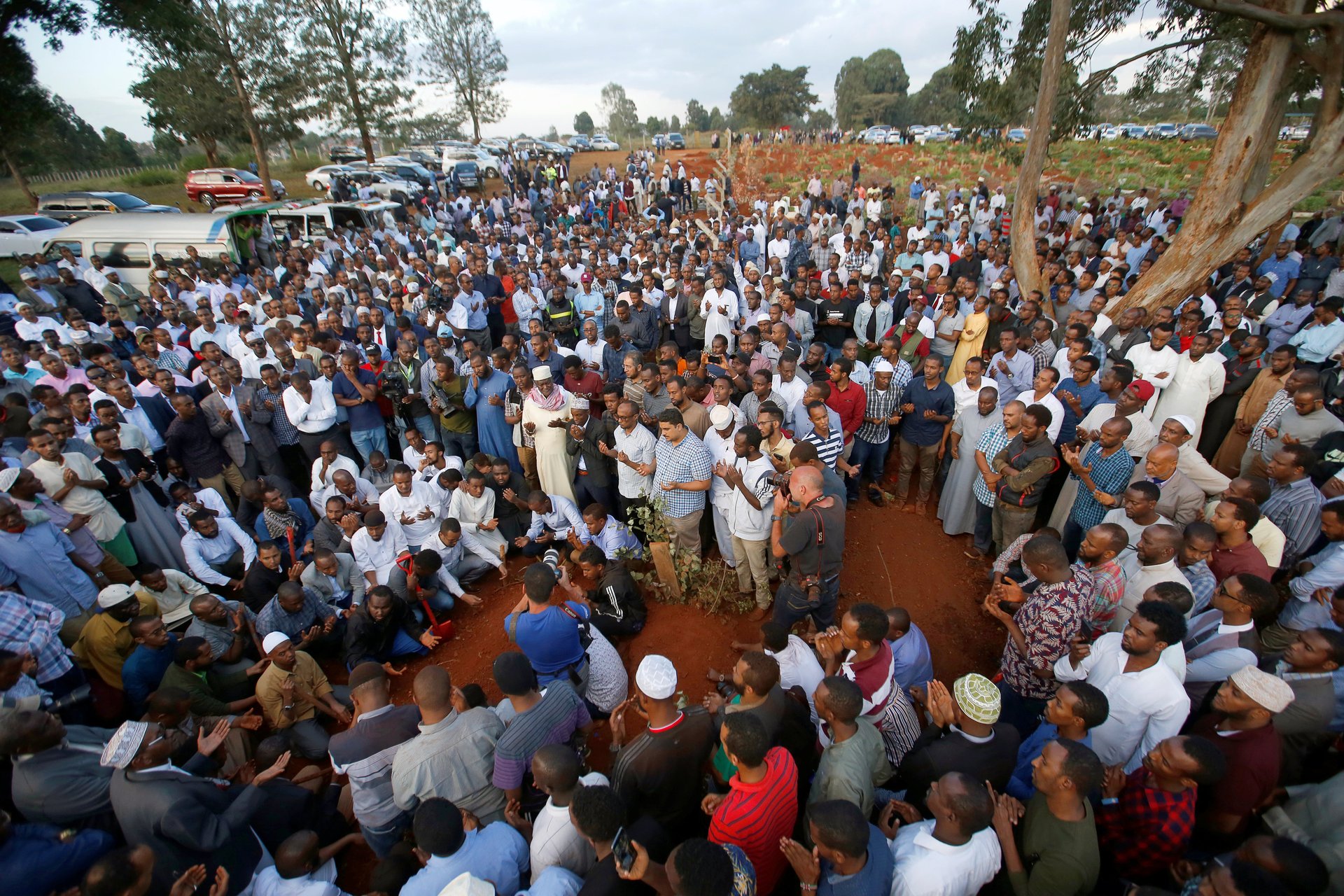
“Abdalla was my favorite storyteller,” said Vishalini Lawrence, who worked with both the deceased at Adam Smith. “He wanted to change the narrative around Somalia with his moving words and beautiful photos and video clips. He had an easy contagious laughter; it was impossible not to find him completely endearing.”
“I will miss the fun and company,” said Ibrahim Somo, who knew both Abdalla and Feisal well. “It was always good to be with them, talking about our time in Somalia and our work.”
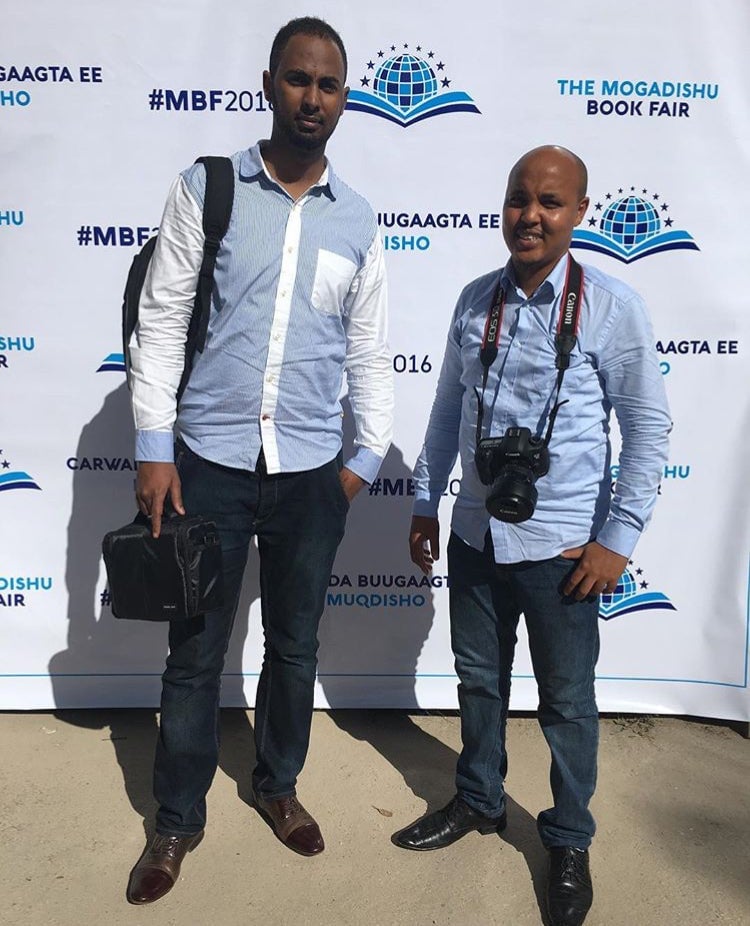
Their funeral service, among the first for the victims of the Riverside attack, drew hundreds of people from all across the city who lined to pray for them. Many more followed the procession, braving the rush hour traffic to arrive at the Langata cemetery southwest of Nairobi just before 6 pm.
The vial of grief that broke with the news of their killing drew not just loved ones, but former classmates and teachers, ex and current co-workers, white, black and brown people, Muslims and Christians alike.
“We are all walking dead,” Mohamed Awale, an entrepreneur and a friend of the deceased, said. “The only difference is when and how, and Abdalla and Feisal’s and everyone else’s pains us a lot more.”
The mood at the cemetery was reflective of not just that of Nairobi’s but also that of Kenya’s: a state of mind that observed we have been here before. Beginning from the US embassy attacks two decades ago to the killing of 67 people at Westgate shopping mall in 2013, the Kenyan capital has repeatedly suffered under the yoke of terror. And since Kenyan forces entered southern Somalia in 2011, al-Shabaab has also assaulted targets all across the east African nation including churches and a university. In justifying its latest strike, the armed outfit has said it carried the Riverside attack in retaliation for Trump’s decision to declare Jerusalem as the capital of Israel.
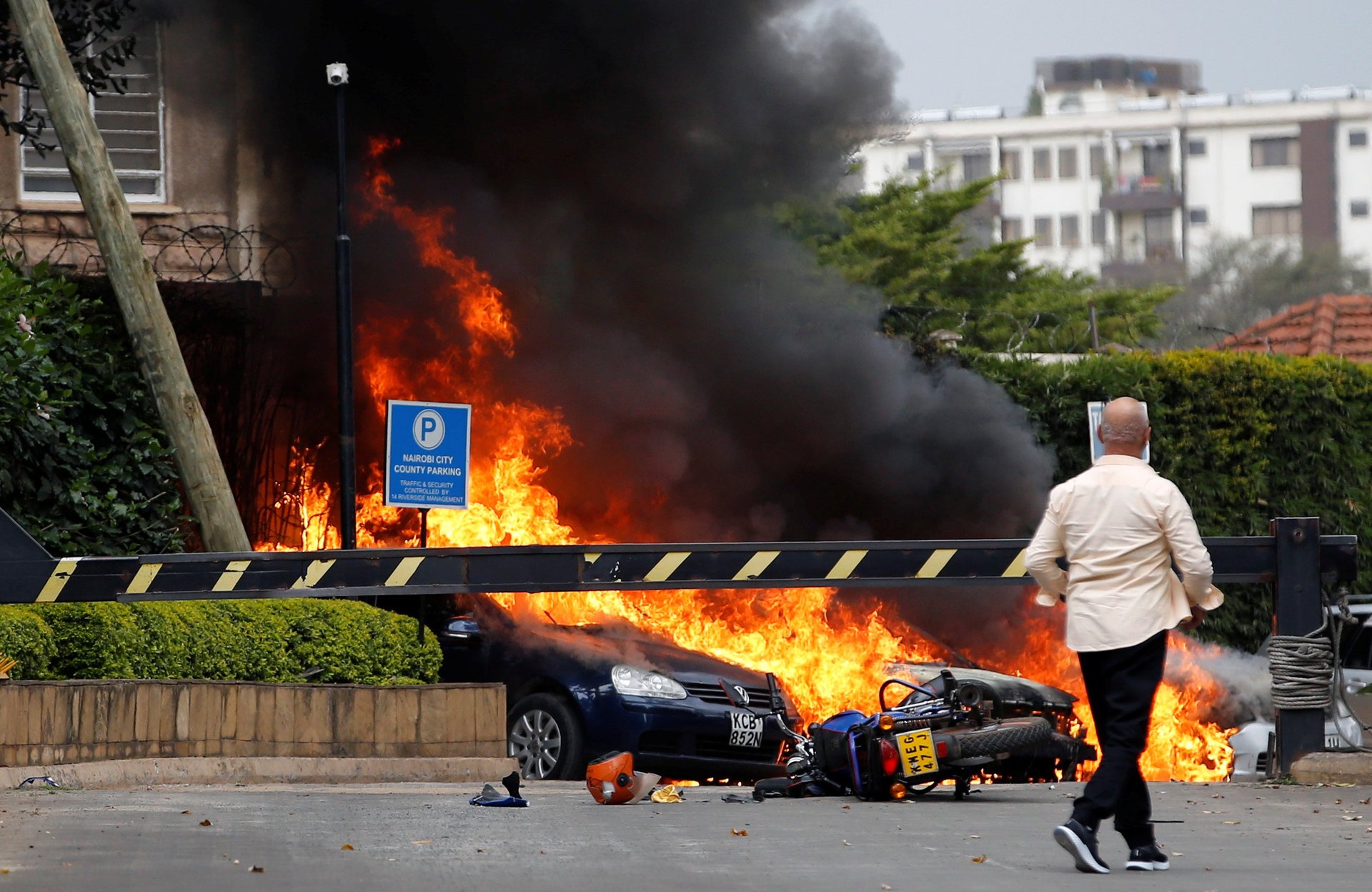
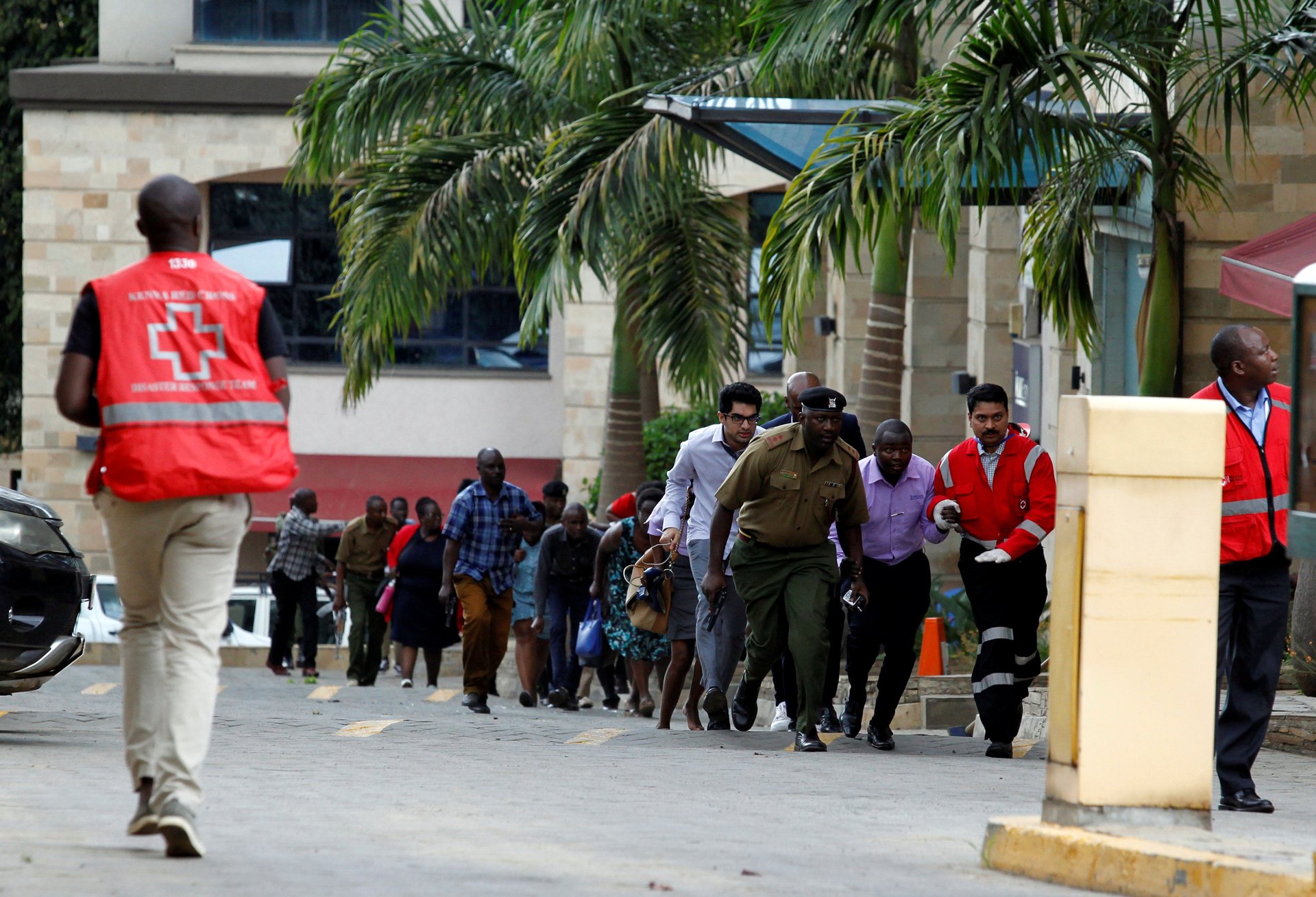
But even as Kenya faces indisputable security threats emanating from Somalia, mourners at the gravesite and Kenyans on social media said the state shouldn’t scapegoat ethnic Somalis since they were afflicted by the terror attack both now and in the past. (Both Feisal and Abdalla were ethnic Kenyan Somalis.) Many also called for unity in the face of adversity and terror, with hashtags including #WeStandStrong, #WeShallOvercome, and #KenyaUnbowed spreading on Twitter. Kenyans also raced to blood donation sites, with e-hailing services including Taxify and Uber giving money to emergency services and providing free rides to hospitals.
Global grief
As details about the victims trickled in, it showcased how the toll went beyond Kenyan shores. The London-based charity Gatsby said its Africa programs director Luke Potter was killed.
The US state department also confirmed the killing of 40-year-old Jason Spindler, an American founder and managing director of I-Dev, an investment and advisory firm focused on growing small business in emerging markets. Sam Gichuru, the head of the startup incubator Nailab said the Houston, Texas native was “a strong player and supporter” of the Kenyan tech ecosystem. Spindler, who served in the Peace Corps, survived the World Trade Center attacks of 9/11. In 2016, he joined Quartz to celebrate our annual Africa Innovators list at an event in Nairobi.
New York senator Chuck Schumer tweeted that “For Jason Spindler to be murdered in an act of terror is unconscionable.”

As normalcy gradually returns, families and friends continue to reconstruct what happened at the site of the attack and devise ways to move on. 31-year-old Bernadette Akinyi Konjalo was the director of revenue and sales at the upscale dusitD2 hotel. When the militants got in, she started getting people to safety, her friend Njoki Ngumi said. But in the end, she didn’t survive, a reality that now confounds her huge circle of friends and family.
“She was always the one sending pastries and gifts to people,” Ngumi recounted. “None of us has even broached the question of what a life without her will look like.”
Sign up to the Quartz Africa Weekly Brief here for news and analysis on African business, tech and innovation in your inbox